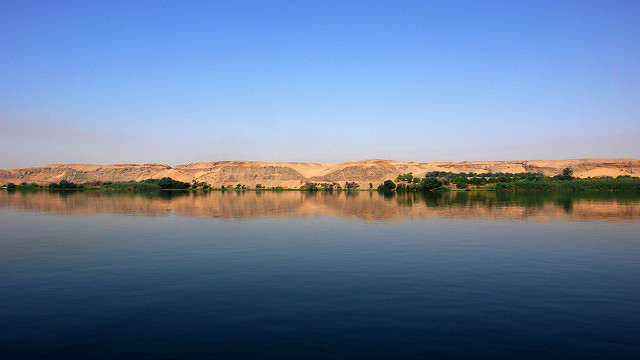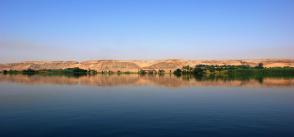
Egypt: Space to grow
Fertile land is at a premium in Egypt. Reclaiming the desert is repeatedly proposed as the solution, but should the country be doing more with what it already has?
The geography of Egypt is particularly striking from the sky: a strip of green along the Nile cuts the desert in two. As the river nears the Mediterranean, it spreads out into the Nile Delta, a verdant pyramid of lush agricultural land with Cairo at its tip. Closer inspection of the Nile Valley and Delta reveals a patchwork of small fields, each around a hectare and connected by 40,000 kilometres of crisscrossing irrigation canals. This fraction of land — just 5% of the country — is where most of Egypt's 92 million people live, where the bulk of its industries are located and where food is produced.
But this production does not cover the population's needs: 40% of all food is imported. Bread constitutes the main source of daily calories for millions of Egyptians, and despite continuous efforts to boost local production, Egypt imports more wheat than any other country — 54% of its supply is imported.
This makes Egypt particularly vulnerable to fluctuations in global commodity prices. Tax increases and a 50% fall in the value of the Egyptian pound in 2016 have seen food prices skyrocket, leaving 16% of the population with poor access to food, according to the United Nations' World Food Programme. The situation is even more serious in rural areas; in parts of Upper Egypt, for example, 39% of people do not have sufficient access to food. And last year, all Egyptians experienced shortages of imported products, such as rice, sugar and cooking oil.
Increasing food production in the country would undoubtedly help. But in the past 50 years, population growth in a region with limited arable terrain has seen available agricultural land per capita decrease by almost two-thirds. Land availability also declined in the aftermath of the country's 2011 revolution when illegal settlements on the outskirts of towns — made possible by weaker law enforcement — saw layers of cement poured over agricultural soil. Irregular water supplies, pollution, deteriorating soil quality and a warming climate are also putting a strain on the farms of the delta.
Read the full article by Louise Sarant via Nature.
[Photo by bfxu | Flickr]







